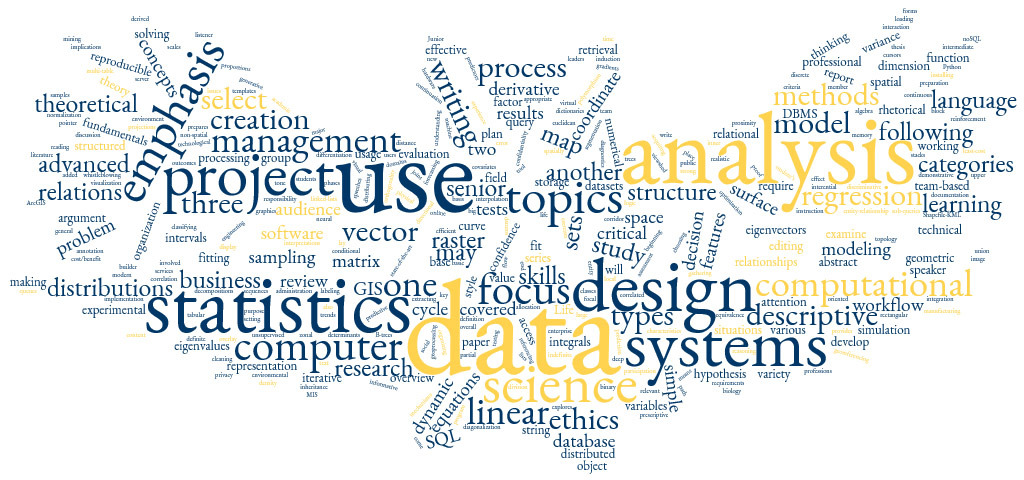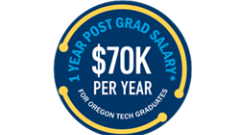
What is Data Science?
What You'll Learn
The data science curriculum was developed following guidelines for a data science degree with mathematical focus recently set out in the National Academy of Sciences Report Data Science for Undergraduates: Opportunities and Options, as well as an analysis of the skills required by jobs in industry. A key element of the program is extensive hands-on experience.
Final touches in program design were aided by a technique from data science known as “web scraping.” Because of Oregon Tech’s commitment to meeting the needs of industry, an essential piece of the program design involved acquiring a list of skills companies are currently looking for when hiring a data scientist. While such a list could be obtained many ways, the University’s list was created by programming a computer to quickly collect (“scrape”) and analyze hundreds of job advertisements for data scientist positions posted online. Web scraping is a good illustration of the type of data science techniques that allow statistical analyses to be done quickly for large amounts of complex data.

Related Resources
Careers
In 2019, the employment website Glassdoor ranked “data scientist” as the “best job in America” for the fourth consecutive year. They found data scientists report a high job satisfaction rating, a high median salary, and plentiful employment opportunities.
Data science is a rapidly growing field with jobs ranging from research in science and healthcare, to technology jobs within companies in marketing and targeted advertising. According to the Bureau of Labor Statistics, data scientists will see a 27.9% increase in demand through 2026. Other jobs include automated systems (cars that drive themselves for example) and governmental positions in data management and reporting. With an advanced degree, someone trained in data science could do research in a variety of fields including statistics, business/management, survey sampling, bioinformatics and many others.
A sampling of organizations employing data scientists:

Google is by far the biggest company that is on a hiring spree for trained Data Scientists. Since Google is mostly driven by Data Science, Artificial Intelligence, and Machine Learning these days, it offers one of the best Data Science salaries to its employees.

Amazon is a global e-commerce and cloud computing giant that is hiring Data Scientists on a big scale. They need Data Scientists to find out customer mindset and enhance the geographical reach of both e-commerce and cloud domains, among other business-driven goals.
Courses
During the first two years of the program, students will build foundational skills in computer programming and logical reasoning in mathematics, with some introductory topics in databases and data science workflows. Advanced skills are taught in the last two years. Beyond standard topics such as machine learning, the program will offer undergraduate students a unique opportunity to learn both techniques for handling geospatial data and state-of-the-art tools for understanding causes and effects rather than just simple correlation.
In their junior year, students will apply material from previous classes in a series of group projects. As a culmination of the hands-on, interdisciplinary curriculum, students will work on an individual capstone project to develop a data driven solution for an outside group, such as a local business or national organization, during their senior year. After graduation, students will be ready for immediate employment as data scientists or for advanced coursework in a variety of graduate programs.






